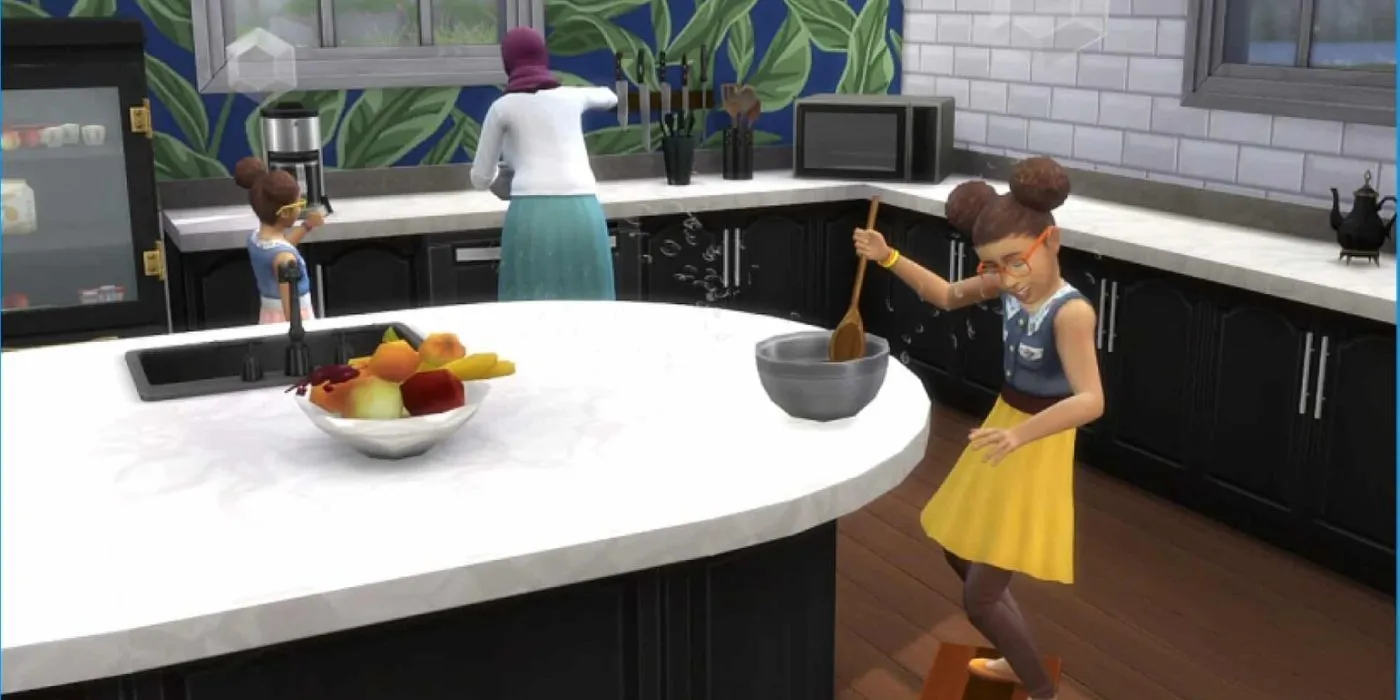
The Sims 4 has significantly expanded its content library compared to earlier iterations; however, this increase has led to some complications in the character and home creation processes. Players can now select from a wide array of traits for their Sims, yet the number of available trait slots remains unchanged. Consequently, numerous traits may go unnoticed or unused since players often overlook less impactful options due to the limited slots afforded.
Initially, adult Sims are allowed a maximum of three traits during the Create a Sim phase. The release of the Sims 4: Growing Together DLC introduced a feature where Sims can acquire additional traits through various interactions. This development effectively raises the number of traits an adult Sim can possess to six. Nevertheless, the vast selection still makes it challenging to choose traits strategically, often resulting in several outmoded options being disregarded.
Reevaluating Dietary Demands: Should They Be Traits in The Sims 4?
Minimal Impact: Justifying Trait Slots

Within the Lifestyle trait category, players encounter several dietary traits such as Lactose Intolerance, Glutton, and Vegetarian. Lactose-intolerant Sims suffer from health issues upon consuming dairy, whereas Vegetarian Sims become ill when eating meat. Gluttons, on the other hand, are more adversely affected by hunger and will consume any food available, even if it’s spoiled or low quality. Given their minimal contributions to a Sim’s overall character development, it’s difficult to rationalize sacrificing a trait slot for these options.
Revamping Dietary Traits: New Possibilities in The Sims 4
Dietary Preferences: A Dedicated Section for Customization



As The Sims 4 continues to grow, it’s essential for the game to reassess its trait system to promote deeper customization for players. With the extensive array of traits currently available, the limited number of slots restricts players in crafting their Sims’ identities. Despite a decade’s worth of content expansions, the core system for creating Sims has largely remained unchanged. This lack of evolution hinders the effectiveness of the trait system, which is increasingly out of sync with the influx of new content.
It may be time to reconsider the inclusion of dietary traits and develop a new section specifically for personality traits that encompass dietary and lifestyle choices, such as sleep preferences. By enabling a wider range of customizable options, gameplay could become more dynamic, enhancing the interactions and experiences of Sims with a more intricate personality framework.
Lessons from The Sims: Revisiting Trait Systems
Reviving Historical Personality Traits

The original Sims series employed a personality system featuring contrasting traits organized in pairs, allowing players to allocate points to emphasize a trait over its opposite. A notable example is the pairing of sloppy and neat traits; players could prioritize points in Neat to make a Sim happier while cleaning. Meanwhile, fewer points would lead to the Sloppy personality, resulting in a distaste for tidiness and messiness.
While replicating this system may not align with the modern gameplay of The Sims 4, an adapted version could enrich the existing trait structure. Players could benefit from a new personality system whereby some traits are paired for decision-making, potentially encompassing hobby preferences as well.
This concept isn’t a definitive solution, but it points toward a promising direction for future updates. Perhaps incorporating personality traits could even be a feature for an expansion pack that introduces evolving character dynamics, enhancing gameplay without the constraints of the current system. Although developers might have other priorities, modders could inspire innovative personality features to enrich The Sims 4.




Leave a Reply ▼